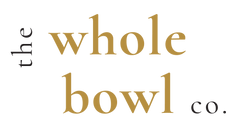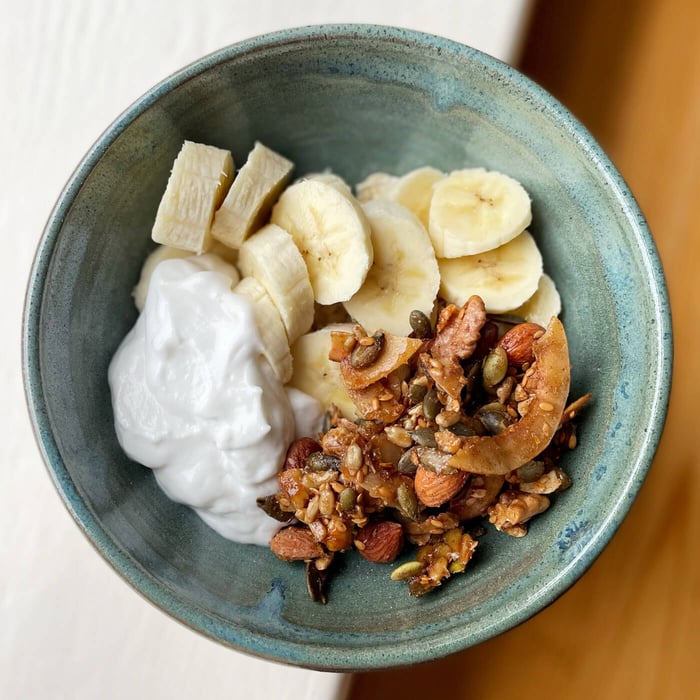Essential Nutrition for Postpartum Recovery - A Guide for New Mums
The postpartum period is a time of immense change and recovery, especially for new mums adjusting to life with a newborn. Eating a nutrient-rich diet can make a significant difference in your recovery and overall well-being. Traditional practices like Ayurveda and Traditional Chinese Medicine (TCM) emphasise the importance of warm, easily digestible meals and rest to restore health post-birth. While these principles are beneficial, remember that your diet should also be realistic, accessible, and enjoyable. Here’s a guide to nutrition for postpartum recovery, focusing on foods that support healing, energy, and mental wellbeing.
Postpartum Nutrition Guidelines to Support Your Recovery
Eat the Rainbow Every Day
Eating a wide variety of brightly coloured fruits and vegetables provides a rich source of antioxidants, essential for healing and immune support. Fruits like berries, kiwi fruit, and oranges, along with vegetables like beetroot, pumpkin, and leafy greens, can help protect against inflammation and reduce the risk of postpartum anxiety and depression.
Include Protein in Every Meal
Starting the day with a protein-rich breakfast can sustain energy levels and help balance blood glucose, reducing mood swings. Options like eggs, beans on wholegrain sourdough, a veggie frittata, or a smoothie with protein powder are nutritious choices. Protein is crucial for hormone production, immune support, and tissue repair. Lactating women need about 1.1 grams of protein per kilogram of body weight daily, so if you weigh 70 kg, aim for at least 77 grams of protein each day.
Choose Nutrient-Dense Foods
Every meal is an opportunity to support your recovery. Opting for whole foods over processed ones—such as wholegrain sourdough instead of white bread—provides more vitamins, minerals, and fibre. Small changes like these can have a big impact on your energy levels, immune function, and mental clarity during the postpartum period.
Prioritise Fibre-Rich Foods
Fibre, found in whole grains, legumes, fruits, and vegetables, is essential for digestion and gut health. It supports regular bowel movements, reducing strain on the pelvic floor, which is often under stress post-birth. Fibre also helps with hormone balance and promotes a healthy microbiome. Including a variety of plant-based foods daily can provide the fibre you need for optimal health.
Stay Hydrated
Breastfeeding mums should aim for 2.5 to 3 litres of fluid each day. Water, herbal teas, soups, and hydrating fruits like watermelon contribute to fluid intake. Proper hydration is essential for lactation, blood circulation, and cellular repair. Avoid excessive caffeine and alcohol, as these can cause dehydration and potentially increase anxiety.
Embrace Cravings Sensibly
Cravings are natural, and occasionally indulging in treats is part of a balanced approach to postpartum recovery. Making sure you’re eating enough protein, fibre, and healthy fats throughout the day can help curb sugar cravings. The postpartum period is a time for self-care, not strict restriction, so enjoy your favourite foods in moderation.
Consider Supplementation if Needed
Continuing with a prenatal supplement or consulting a health professional can help fill any nutritional gaps, particularly if you’re breastfeeding. Nutrient demands are higher during lactation, so tailored supplements may help ensure you’re meeting these needs. Speak to a qualified health professional for personalised advice.
Additional Tips for New Mums’ Postpartum Nutrition
- Focus on Regular Meals and Snacks - Regularly spaced meals and snacks help maintain stable energy levels and prevent blood sugar crashes.
- Plan for Easy, Nutrient-Dense Snacks - Prepping snacks like trail mix, veggie sticks with hummus, and yogurt with fruit can make nourishing choices easy. Some new mums build a lunch box for their day so they have it prepared and planned out in case the day gets turned on its head (which can happen, often). Find our postpartum snack list here.
- Practice Self-Compassion - Adjusting to life with a newborn is challenging. Prioritise what’s manageable and remember that small steps towards nutrition are beneficial.
Frequently Asked Questions (FAQ) on Postpartum Nutrition
Q: Why is hydration so important postpartum?
A: Staying hydrated supports milk production for breastfeeding mums, improves circulation, and aids in cellular repair, all of which are vital for postpartum recovery.
Q: What are the best protein sources for postpartum recovery?
A: Great protein options include lean meats, eggs, fish, beans, lentils, nuts, and dairy products like Greek yoghurt. These foods help repair tissues, balance hormones, and sustain energy.
Q: How can a nutrient-dense diet impact mental health?
A: Nutrient-rich foods high in antioxidants and omega-3 fatty acids can reduce inflammation and oxidative stress, lowering the risk of postpartum anxiety and depression.
How to Build a Balanced Postpartum Diet
A: A healthy postpartum diet focuses on nutrient density, hydration, and a balance of protein, fibre, and healthy fats. Simple, whole food choices can make a world of difference in your energy levels, healing, and mood. Enjoy nourishing foods that help you thrive in this transformative period and seek professional advice if you need support in optimising your nutrition.
With a little planning and compassion for yourself, postpartum nutrition can be manageable and rewarding, empowering you to focus on bonding with your new baby and embracing the journey ahead.

